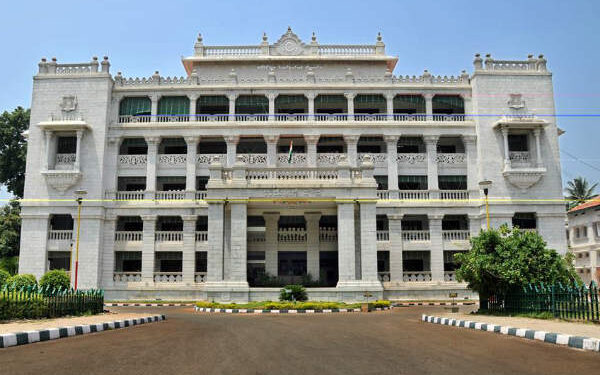The Karnataka Public Service Commission (KPSC), established under the Constitution of India, is tasked with conducting competitive examinations for state government job recruitments. However, over the decades, KPSC has been embroiled in corruption scandals, impacting thousands of aspirants and undermining the integrity of the recruitment process. This survey note explores the historical and recent instances of corruption, the commission’s failures, high cutoffs despite tough papers, legal interventions, student protests, and the broader implications for governance in Karnataka.
Historical Context of Corruption in KPSC
KPSC’s history is marked by significant corruption, particularly in the late 1990s and early 2000s. The recruitment for gazetted probationers in 1998, 1999, and 2004 was marred by allegations of favoritism and bribery, leading the high court to quash these appointments in 2016, citing “rampant corruption” (Form special court to try KPSC scams). The court found that KPSC violated rules in shortlisting candidates and that bribes ranging from Rs 20 lakh to Rs 80 lakh were demanded during interviews.
Another major scandal emerged in 2011, involving the selection of 362 candidates for gazette posts. The Criminal Investigation Department (CID) confirmed corruption, leading to the government scrapping the recruitment in 2014 (Congress govt scraps 2011 KPSC recruitment over bribe scam | Bangalore News). The investigation revealed that subject experts were bypassed, answers were rewritten, and viva voce marks were given in exchange for bribes, as detailed in a 2022 Deccan Herald article (A Bill was passed to hide KPSC corruption, overrule HC, SC).
Recent Corruption Cases and Allegations
Recent years have seen continued allegations, with the 2024 Assistant Executive Engineer (AEE) recruitment exam highlighting exam malpractices. A sub-committee report, published on February 23, 2025, found that 10 candidates tampered with OMR sheets, recommending their appointments be canceled and the case be handed over to CID for further investigation (KPSC scam: Sub-committee points to lapses committed by then Secretary in the recruitment of AEEs). The then secretary, Latha Kumari, was accused of publishing the final selection list without consent, pointing to internal lapses.
Additionally, in 2023, Chief Minister Siddaramaiah recommended H.S. Bhojya Naik, a professor with pending corruption complaints, for a KPSC member position, sparking controversy (Karnataka CM recommends professor facing corruption complaint to KPSC). This move, despite allegations of financial irregularities, underscores the challenges in appointing unbiased members.
KPSC’s Failures and Impact on Aspirants
KPSC’s failures have repeatedly disadvantaged aspirants, with multiple exam postponements and re-examinations. The Gazetted Probationers Prelims, conducted after several delays in 2024, faced criticism for errors in the Kannada question paper, leading to protests and a re-exam on December 29, 2024 (Writers and activists seek withholding KPSC exam results over errors in Kannada question paper). Despite these issues, KPSC has been reluctant to correct mistakes, with aspirants alleging that the commission prioritizes corrupt practices over fairness.
Aspirants have also faced delays in result announcements, with protests in 2022 and 2023 highlighting waits of 2-3 years for results, such as for junior engineer posts (KPSC Results: Protest by Students’ Association over Delay in KPSC Results | Bengaluru News). These delays, often linked to corruption, have wasted productive years for candidates, exacerbating unemployment issues.
High Cutoffs Despite Tough Papers and Low Attendance
A puzzling trend is the high cutoffs despite tough question papers and lower attendance. For instance, the KAS 2020 prelims had a general category cutoff of around 180/400, while the 2022 PDO exam saw cutoffs at approximately 70% for general category, despite reports of difficult papers (KPSC KAS Cut Off 2024 – Get the Previous Year Cut Off Marks Here!). This discrepancy suggests possible manipulation, with aspirants suspecting that cutoffs are adjusted to favor candidates who may have paid bribes, as alleged in a 2019 Change.org petition (Corruption in KPSC… KAS EXAM SCANDAL… DISMISS THE LIST WHICH KPSC HAVE RELEASED).
The 2024 KAS exam analysis indicated a tough paper, yet expected cutoffs remained high, around 60-65% for general category, raising doubts about the commission’s transparency (KPSC KAS Cut Off 2024, Check Previous year Cut off Trends). This pattern, despite lower attendance in some exams, suggests systemic issues, potentially linked to corruption.
Comparison of Cutoffs for Various Exams
To illustrate, here are the cutoff marks for key exams over recent years, based on available data:
| Exam | Year | General Category Cutoff | SC Category Cutoff | Notes |
|---|---|---|---|---|
| KAS Prelims | 2020 | 180/400 | 160/400 | Tough paper, high cutoff raised suspicions of manipulation. |
| PDO | 2022 | 70% (140/200) | 60% (120/200) | High cutoff despite reported difficulty, linked to corruption claims. |
| FDA | 2021 | 60% (120/200) | 50% (100/200) | Delays in results, protests by aspirants. |
| SDA | 2019 | 55% (110/200) | 45% (90/200) | Additional lists issued, suggesting irregularities. |
| PSI | 2022 | 65% (130/200) | 55% (110/200) | Allegations of recruitment scam, protests by AAP. |
These figures are approximate and based on historical trends, as exact cutoffs are not always publicly detailed. The high cutoffs, especially in recent years, have fueled protests and legal challenges, with aspirants demanding transparency.
High Court Judgments and Comments
The high court has been vocal in addressing KPSC’s corruption. In 2016, it quashed appointments from 1998-2004, ordering a redo, and remarked on the “rampant corruption” within KPSC (Form special court to try KPSC scams). In 2013, it ordered notices in a case where a KPSC member challenged a criminal case related to bribery demands, highlighting the commission’s internal issues (KPSC member moves court challenging criminal case).
The Supreme Court, in 2018, expressed anguish over KPSC’s state, noting trials for fraud and cheating in candidate selection (KPSC scam: Top court orders trial of candidates for forgery). These judgments underscore the need for systemic reform, with the court emphasizing transparency and accountability.
Student Unions and Organizations Fighting KPSC
Student unions and organizations have been active in protesting KPSC’s corruption. The All Karnataka State Students’ Association (AKSSA) has organized protests, such as in December 2023, over delays in results, with candidates alleging corruption as a reason (KPSC Results: Protest by Students’ Association over Delay in KPSC Results | Bengaluru News). KRV, a pro-Kannada organization, has also been vocal, with members booked in February 2025 for protesting at KPSC offices over corruption affecting Kannada medium candidates (KRV members booked for protesting in front of KPSC).
These protests, including demonstrations at Freedom Park and letters written in blood to the CM, reflect the frustration of aspirants and the demand for a fair recruitment process (KPSC issue: KRV members write letter to CM in blood).
Allegations Against Current KPSC Members and Chief Director
Recent allegations include the appointment of H.S. Bhojya Naik in 2023, despite pending corruption complaints, raising concerns about the integrity of current members (Karnataka CM recommends professor facing corruption complaint to KPSC). The chief director and other members have faced scrutiny, with protests demanding their accountability, especially in light of the 2024 AEE scam.
Officers Transferred for Fighting Corruption
There have been instances where officers attempting to expose corruption were transferred. In 2013, a deputy secretary filed an FIR against KPSC chairman and members, leading to a CID investigation, but officers involved were later transferred, suggesting government interference (KPSC recruitment scam: CID report confirms malpractice). This pattern indicates a lack of support for anti-corruption efforts within the system.
Road Ahead
KPSC’s corruption has had a profound impact on aspirants, with high cutoffs, exam malpractices, and delays undermining fair opportunities. Legal interventions and student protests highlight the need for reform, but the commission’s reluctance to change suggests deeper systemic issues. Addressing these challenges requires transparent governance, strong legal oversight, and support for officers fighting corruption, ensuring a fair recruitment process for all.
Subscribe to “The Raguel” for more updates and news!




































